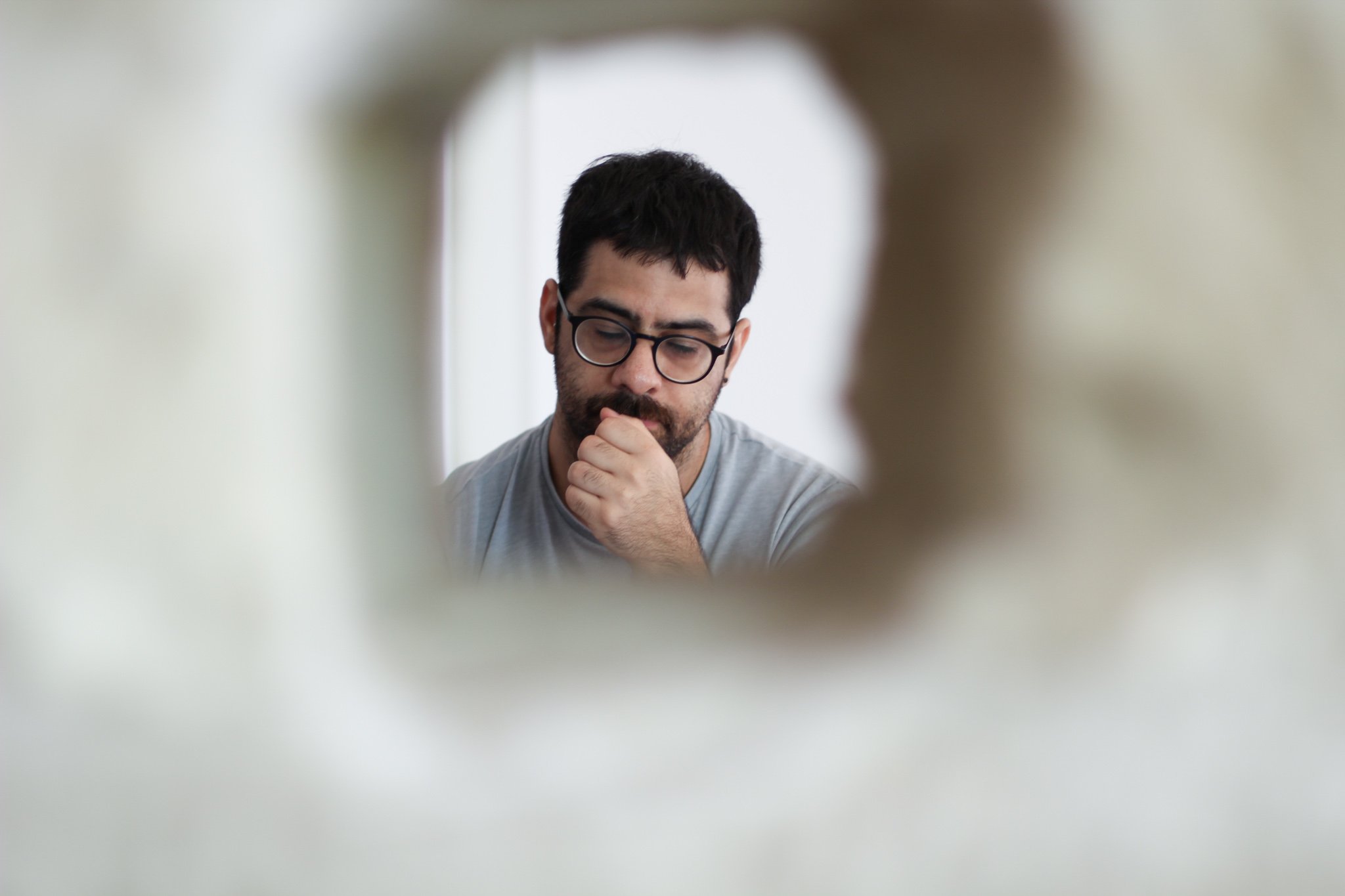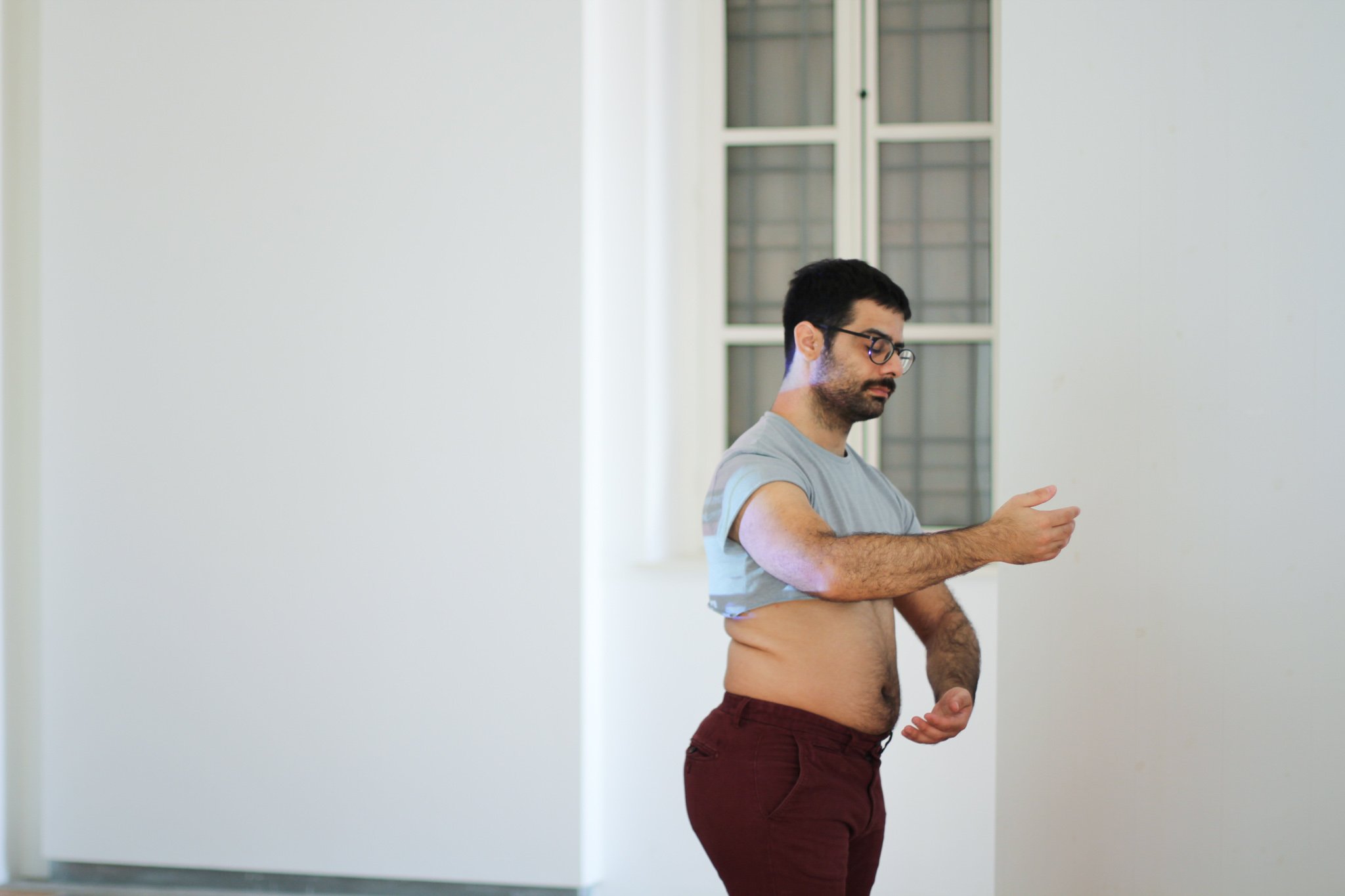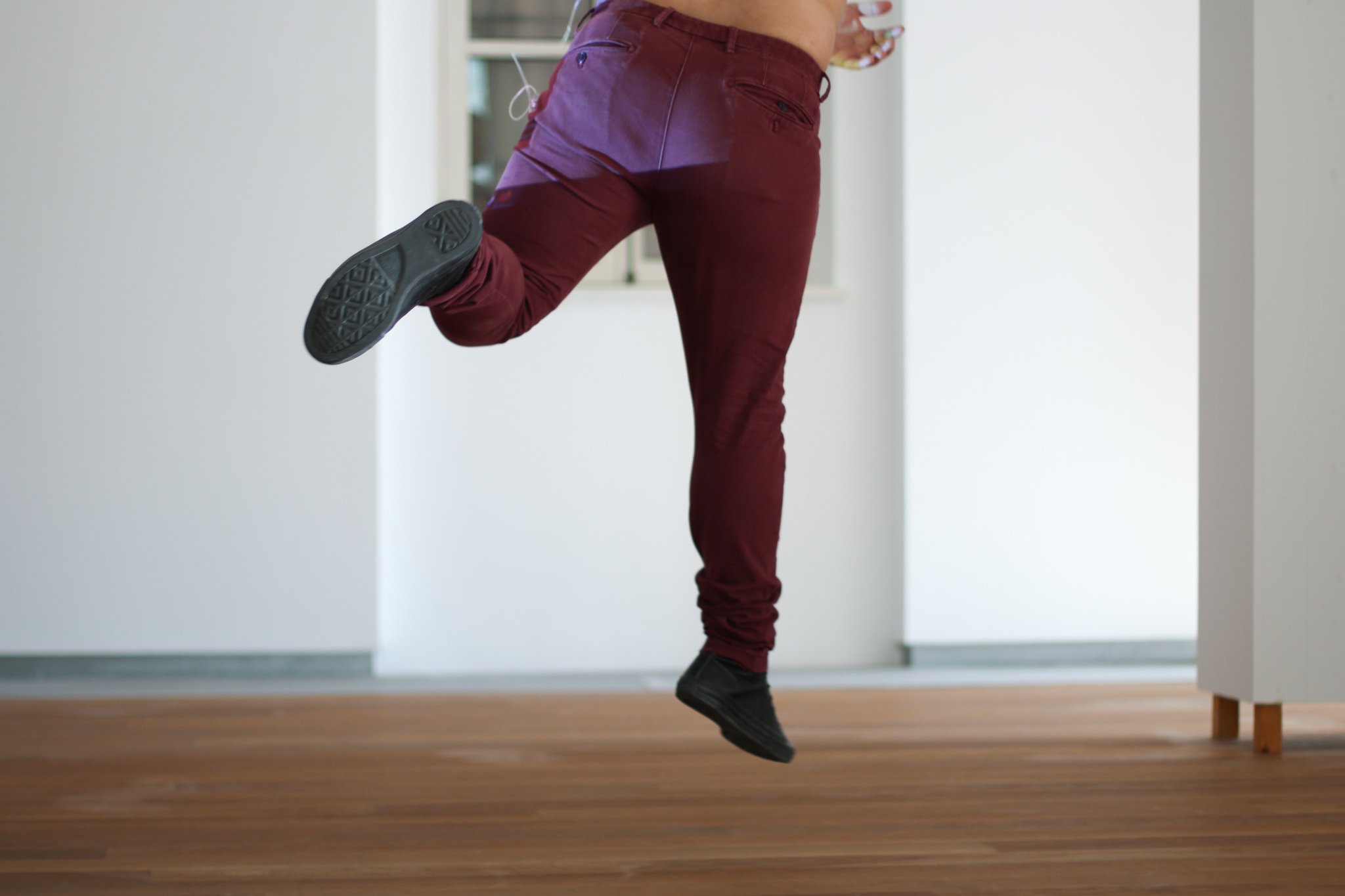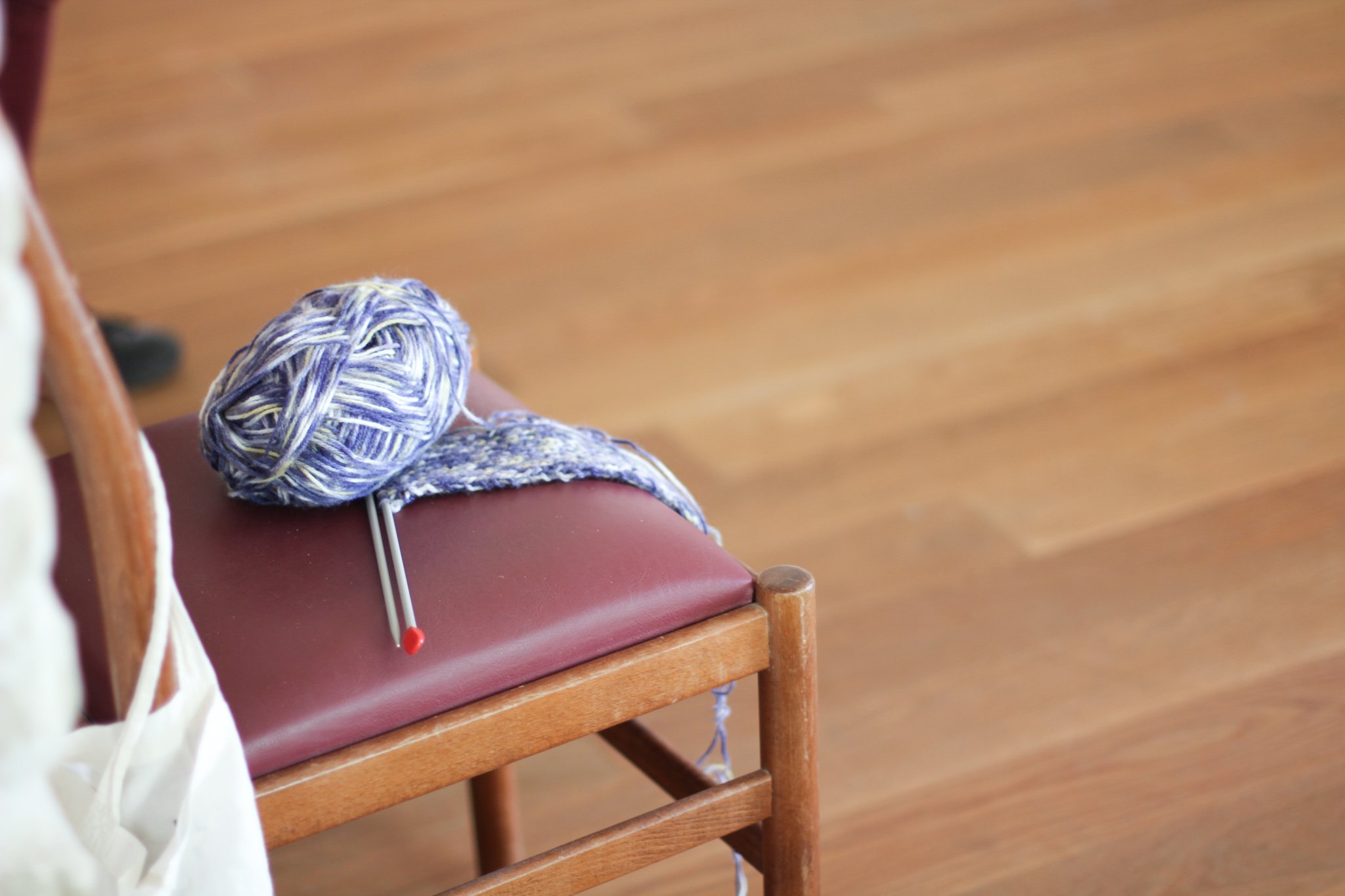THE ONLY THING THAT MATTERS IS HOW MUCH YOU LOVE
Photo essay by Kestrel Farin Leah
The Only Thing That Matters Is How Much You Love by Petros Konnaris was performed at Open House Festival, Limassol, 2020
The work is sparse—I don’t mean minimal, because, well, extreme belly shirt and hot pink wooly stuff. But there’s an austerity, yes, an absence, a want = lack. And a lack of action. In the waiting area, I am drawn most to the wooly things—the abandoned in-progress knitting: a single small mitten, and an odd, square-ish thing that resembles a hat (a failed hat?)—accompanied by: social services requirements for adoption; a handwritten recipe for “my cannelloni”; and a theoretical text entitled Caring Masculinities.
Once inside, we watch patiently as Petros taps away at his laptop. The extreme belly shirt and the tight waistband that cuts under his soft torso has the obvious distorting effect of feminizing his figure, maternalizing it. But instead of really trying to mimic the silhouette of a pregnant belly, it’s like the outfit frees his flesh to play the role if it wants to, forcing us to confront how we feel about the transposing, while recognizing the image is our own projection.
He conjures flurries of reflections with acronyms and emojis, entering descriptions of emotions and asking the almighty Internet to deliver the symbol. He sources gifs in real-time: Dumbo cradled in his mother’s trunk; a monster rocking her monster baby; another monster and monster kid monstrously consuming monster food together. A band of animated outcasts.
(Birds do it …
Bees do it …
Even educated fleas do it …)
Cogitations of pregnancy, mothering, and queer adoption rights are semi-filtered through the global language of digital symbols—universal, but also canned. I wonder if words—his own or others’—have failed him—and whether depositing emotional complexity into emojis and sharable Disney moments for the audience bares some impediment to expression, or our inability to understand? The body before us is bypassed, the personal is made impersonal in the most commonly accepted way—lest we forget that the jurisdiction of the government over one’s sexual choices, or right to parent, is a triumph of the same thing.
After a while he moves side-to-side and turning, in a waltz-like rhythm, an imagined baby in his arms. I realize the music in the waiting area, which we can hear from here, is a waltz, and his breath has become audible and rhythmic: Ha-ha-ha—Ha-ha-ha—Ha-ha-ha—Ha-ha-ha . . . This rocking choreography, which continues for some time, actually starts to send our two-year-old daughter to sleep on the gallery floor. In our efforts to soothe her as an infant, we too would be taken over nightly by the same rhythmic breathing, and sooner or later the footwork—always a waltz. Petros asks again and again What is it like to be a mamma? in bold font. I want to call out You already know.
He slowly starts to introduce a hop with each shifting of weight. The hops turn into small jumps then into leaps, as if in this persistence he’s trying to fly, as if he and the imagined baby might be untethered from the ground. Eventually, the gesture diminishes and morphs, and the imagined baby has become an imagined child, who he walks around in a circle—faster, then faster, and faster, as if they might rise upwards as a result of centripetal force. I’m not sure if this is even possible—why does it seem so? But his efforts stop far short of what a committed attempt to achieve extra-terrestriality might look like.
He casually takes a drink of water. He gives up the image, he gives up the performance. He sits, and he knits, and watches the gifs. There is a moving patience in the knitting—a preparation for the imagined child—but equally an impotence, an alienation, or a layer of self-distancing that signals a preparation for failure. He re-visits his assemblage of digital thinking over and over. Dear Cyprus, get your act together! No fuck-yous, no impassioned speeches. And in this politeness, pointlessness.
He adds, deletes and rearranges. He adjusts color, font, size and order. An online purgatory—the circular and repetitive pattern of desire mediated by our keyboards with which we are all becoming familiar, with lesser or greater stakes. And, an ultimate loneliness, amplified by the digital space and the physical. He seems utterly alone amongst us.
Gentleness, to the point of mundanity. Boredom as a kind of freedom, which comes from caring for the minutest details, from inactivity, from the negation of ego. Surely, a way of being that might be therapeutic for this society. Surely, a way of parenting that might be therapeutic for a child. What is the requirement to have a child? Petros’s answer is nothing. Nothing, but love.
Outside the window behind him, in the alley, a man calls out and is followed by a sea of cats, their eager tails just in sight. Undoubtedly an entire colony, multiple generations of cats who have been boundlessly populating the vicinity for years.
Boundlessly.




